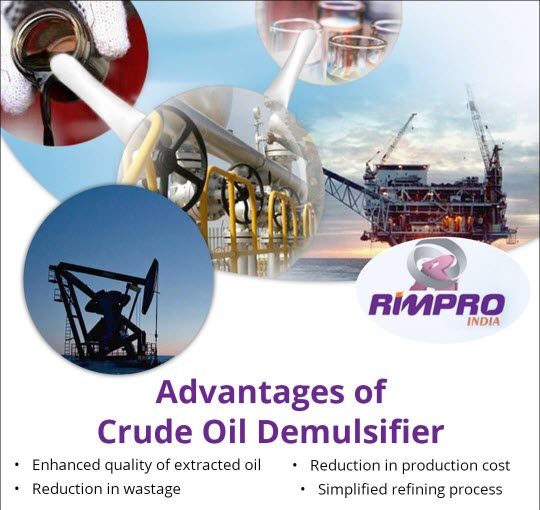 Menu
Menu
How Do Crude Oil Demulsifiers Enhance Oil-Water Separation?
Crude oil is a valuable natural resource that is extracted from the earth and plays a vital role in various industries, including energy production, transportation, and manufacturing. However, when crude oil is extracted, it often contains significant amounts of water. Oil-water emulsions are formed, which pose challenges for oil processing and transportation. To overcome this issue, the use of crude oil demulsifiers has proven to be highly effective in enhancing oil-water separation.
Separating oil and water from emulsions is challenging due to their inherent stability. Conventional separation techniques such as gravity settling or filtration are often insufficient, leading to prolonged processing times, reduced efficiency, and increased operational costs. To address these challenges, the use of demulsifiers has become a widely adopted solution in the oil industry.
Working Mechanism of Crude Oil Demulsifiers
Demulsifiers typically consist of a combination of active agents that target different aspects of emulsion stability. They can act as surface-active agents, lowering interfacial tension between oil and water droplets. This action weakens the emulsion film, enabling coalescence. Demulsifiers may also destabilize the emulsion by altering the electrostatic charges on the droplets, leading to repulsion forces and subsequent aggregation.
Benefits of Using Crude Oil Demulsifiers
The use of crude oil demulsifiers offers several benefits in oil-water separation processes. Firstly, demulsifiers significantly reduce processing time by accelerating the separation of oil and water. This leads to enhanced operational efficiency and increased production rates. Secondly, demulsifiers improve the quality of separated oil and water by reducing the carryover of contaminants. This ensures that the recovered oil meets the required specifications for further refining or commercial use. Additionally, demulsifiers help mitigate equipment fouling and corrosion issues that can arise from prolonged contact between oil and water. By promoting efficient separation, demulsifiers contribute to cost savings and overall process optimization in the oil industry.

Factors Affecting the Performance of Demulsifiers
Several factors influence the performance of crude oil demulsifiers. The nature and composition of the emulsion, including the type of oil, water content, and presence of other impurities, can impact the effectiveness of demulsifiers. Temperature, pH levels, and salinity of the emulsion also play a role in demulsifier performance. It is crucial to consider these factors when selecting the appropriate demulsifier for a specific application.
Application of Crude Oil Demulsifiers in Oil Industries
Crude oil demulsifiers find widespread application in various sectors of the oil industry. They are utilized during oil production, transportation, and refining processes. In upstream operations, demulsifiers aid in the separation of water from crude oil extracted from reservoirs. During transportation, demulsifiers help minimize the formation of emulsions and reduce the associated challenges in pipeline flow. In refineries, demulsifiers facilitate the efficient separation of water and oil, ensuring optimal refining processes.
Future Trends and Innovations
The field of crude oil demulsification continues to evolve with ongoing research and development efforts. Future trends and innovations aim to enhance demulsifier performance, improve environmental sustainability, and reduce the overall environmental footprint of oil-water separation processes. The development of more efficient demulsifiers with lower chemical consumption and reduced environmental impact is a focus area for researchers and industry professionals.
Conclusion
Crude oil demulsifiers are invaluable additives in the oil industry, enabling efficient separation of oil and water emulsions. By disrupting interfacial films and promoting coalescence, demulsifiers enhance the effectiveness of separation processes, resulting in improved operational efficiency, reduced costs, and higher-quality recovered oil. As the oil industry continues to evolve, the demand for effective demulsification solutions will remain crucial.
